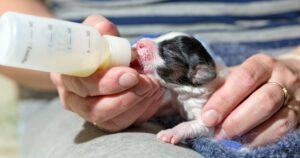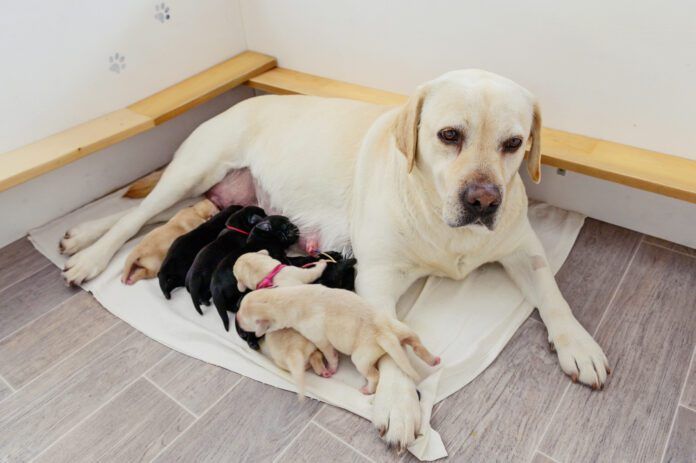What is a runt puppy? By definition, the word “runt” refers to an animal who is smaller than average. Runt is also used to refer to the smallest pup in a litter, who may or may not be smaller than average size. It’s important to realize that, after birth, runt puppy development is usually normal.
Runt Puppy Development

While birth size is important, the smallest born pup usually catches up to his siblings and might even surpass them at adulthood. Why he was born as the smallest pup isn’t clear. It could be he was a day later in the fertilization process, or his placenta wasn’t providing as many nutrients as the other puppies were receiving. Still, with momma dog providing plenty of milk, the runt usually catches up in size.
Concerns with a runt puppy include making sure he gets his fair share at the milk bar and doesn’t get shoved out of the way by his bigger siblings. Previously, people would supplement the runt, but current recommendations are to allow the runt separate feeding times so he can get his fill of the mom’s nutritious milk, supplementing one of the bigger pups instead, if necessary.
Runt of the Litter Health Problems
Don’t believe old wives’ tales about runt of the litter health problems. Being born smaller does not necessarily mean the puppy has or will have health problems. What matters is how the runt develops.
Puppies who do not develop and remain smaller than the rest of the litter may have health problems. Common problems that can cause a pup to lag behind include heart defects, a cleft palate, and gastrointestinal problems such as a liver shunt or blocked anus. Any organ defect may contribute to small size and potential illness or death.
If the runt puppy does not make up for this smaller size fairly quickly, have him evaluated by a veterinarian. You can detect a cleft palate yourself and sometimes you can “feel” a serious heart murmur right through the chest, but you still need veterinary documentation and direction.
Runt Puppy Personality
If your pup checks out as healthy but is just small, you’re good to go. Runt of the litter personalities are usually very positive. Runt puppies often get handled more and loved on more, so they are usually well socialized and happy. They still need to learn boundaries, however, so don’t spoil them. Let their dam handle interactions if she is a good mother.





